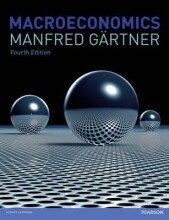Decision making by individuals and firms - Behavioural Economics - Irrational : an economist's view
8 important questions on Decision making by individuals and firms - Behavioural Economics - Irrational : an economist's view
What six mistakes do peoples' irrationality behavior typically stem from when they are making economics decisions?
2. Overconfidence
3. Unrealistic expectations about future behavior
4. Counting dollars unequally
5. Loss-aversion
6. Status quo bias
How does misperception of opportunity cost make people think irrationally when making a decision? how is it related to sunk cost?
- misperception of opportunity cost make people think irrationally when making a decision, by taking an opportunity cost into account when none actually exist
- A misperception of what exactly counts as opportunity cost, and what doesn't is the root cause of counting sunk cost when one makes a decision.
How does overconfidence make people think irrationally when making a decision? What is it a function of?
- Overconfidence can lead people to make a large spending, such as buying a car without understanding the benefits and the costs,
- they tend to remain overconfident because they remember their success and use overspending to remember only their success and forget their failures.
- overconfidence is a function of ego
- Higher grades + faster learning
- Never study anything twice
- 100% sure, 100% understanding
How does Unrealistic Expectations about the future make people think irrationally when making a decision? And what is this behavior another form of?
- Irrationality that occurs when one is being overly optimistic about the future behavior.
- it is another form of overconfidence
How does counting dollar unequally makes people think irrationally when making a decision
this will lead to spending more by the account in which one feels like the dollar is not as valuable as the other.
this is called mental accounting
How do we define mental accounting? And what is the effect of mental accounting?
- mental accounting is the habit of assigning dollars in different accounts and making the dollars in one accounts worth more than the dollars in another account.
- the effects of mental accounting is that after the decision is made there is usually some for of regret
- because of the failure to understand that regardless of the form it comes with a dollar is a dollar
How does loss aversion make people think irrationally when making a decision? how is it related to sunk cost? Why?
- This lead to irrationality because it give a person an oversensitivity to loss, leading to a unwillingness to recognize a loss and move on.
- loss aversion can also explain why sunk cost are so hard to ignore
- because ignoring a sunk cost means recognizing that the money you spent is unrecoverable and therefore lost.
How does status quo bias make people think irrationally when making a decision?
when people don't make decisions about something that might be cause of they might regret a decision if made, so better let it be, even though the outcome is the same.
The question on the page originate from the summary of the following study material:
- A unique study and practice tool
- Never study anything twice again
- Get the grades you hope for
- 100% sure, 100% understanding































